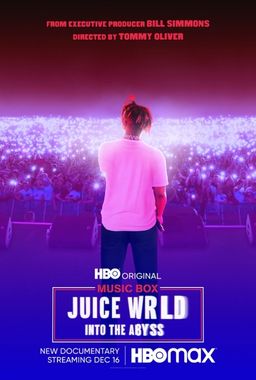Legacy & Artistry
Higgins said his musical influences were genre-wide from rock to rap music, and that his biggest influences were rappers Travis Scott, Chief Keef, Kanye West and British rock singer Billy Idol. Billboard writer Michael Saponara claimed, "If West and his sparse 808s were a tree, it would have grown another branch with the blossoming art displayed by fellow Chicago native Juice WRLD in 2018". Higgins was among the ranks of openly vulnerable artists born from the emo rap scene inspired by West's influential fourth album, 808s & Heartbreak (2008). During an interview with All Def Music, Higgins said, "I was singing "Street Lights" like I had **** to be sad about. Kanye [West] is a time traveler. That ***** went to **** near 2015 and came back with some sauce". His other influences included Wu-Tang Clan, Quietdrive, Fall Out Boy, Black Sabbath, the Starting Line, the Cranberries, the City Drive, 2Pac, Eminem, XXXTentacion, Kid Cudi and Escape the Fate. Higgins' music has been branded as "emo" and "rock" leaning, "genre-bending" with music focusing on "every broken heart, every wounded feeling". More specifically, he has been labeled as a hip hop, trap, emo rap, and SoundCloud rap artist. With a penchant for short, hook-heavy songs, Higgins seemed a leading figure for the current era of hip-hop. In 2018, the streaming platform Spotify named "emo rap" its fastest growing genre. Higgins achieved arguably the most mainstream success of any artist in the sub-genre. This was boosted by his collaboration with Panic! at the Disco frontman Brendon Urie. Higgins himself considered the emo label to be both negative and positive as he felt music sometimes has to be a bit dark to reflect his belief that the world is not really a light or a happy place. Higgins said that "Lucid Dreams" was the only track from Goodbye & Good Riddance that he wrote, while the rest was done impromptu. Rather than write down his rhymes, Higgins crafted whole songs in a few minutes by way of off-the-cuff rhyming. Most of the time, his songwriting process involved freestyling lyrics instead of writing them down. When he did write a song, it usually began with hearing a beat and instantaneously conceiving an idea, although Higgins sometimes found himself alone with an idea for a song and afraid that he would be unable to remember it hours later after arriving at the studio. For this reason, he sometimes took a voice memo or simply wrote the whole song. Higgins saw the value in his position as one of very few contemporary SoundCloud artists who could compose soul-bearing ballads and odes but remain comfortable freestyle rapping over classic hip hop beats. Rather than eschewing it, his freestyles emphasize wordplay and feel indebted to the art form's tradition. When asked for his opinion on why freestyles are no longer considered the rite of passage in hip hop culture as they once were he replied, "Stuff is just changing, that's all. We're moving into a new era of music. I feel like it's not necessarily a good thing to forget where **** started, but **** is changing". Though his songs do not always feature very technical lyricism, intricate flows or tongue-twisting wordplay, Higgins delivered inventive flows and memorable bars during his freestyles. His most successful singles express melodic, emo-inspired compositions that exhibit his songwriting skill. His songs harbor melodic flows to complement their melancholic subjects. Higgins claimed he talked about things others are thinking but are afraid to speak about, such as being vulnerable and hurt. Having built a following through emo rap, Higgins offered lyrics that touch on heartbreak and fragmented feelings. Though not entirely groundbreaking, his musical approach provided a sense of familiarity that heartbroken adolescents of the current generation could gravitate towards. Higgins maintained that he only wrote from personal experience, and found strength in his pain and vulnerability. While the lyrical content of his songs often centered on heartache and bitterness, there are occasionally more boastful lines and creative references.
Juice Wrld: Into the Abyss is a 2021 documentary film, directed by Tommy Oliver. Focusing on the life and death of American rapper Juice Wrld, the documentary is the sixth and final part of the HBO Max documentary series Music Box. It premiered at the AFI Fest on November 12, 2021, where it won the AFI Fest Documentary Audience Award, and will officially release on December 16, 2021, with an exclusive preview at the Juice WRLD Day event held at Chicago's United Center on December 9. Shot, edited, and produced by Oliver, the documentary contains footage from Juice's last years, and contains appearances from numerous friends and family of his, including his protege The Kid Laroi, girlfriend Ally Lotti, and manager Lil Bibby. It also features numerous frequent collaborators of Juice's, including rappers Trippie Redd, Polo G, and G Herbo, producers Benny Blanco, Rex Kudo, and Hit-Boy, and music video director Cole Bennett. The documentary's release was preceded by the release of Juice's fourth studio album and second to be released posthumously, Fighting Demons. The first single from the album, "Already Dead", was released to streaming services on November 12, 2021. The album was officially released by Juice's labels, Grade A and Interscope Records on December 10, 2021. |
||||


 Juice Wrld: Into the Abyss
Juice Wrld: Into the Abyss